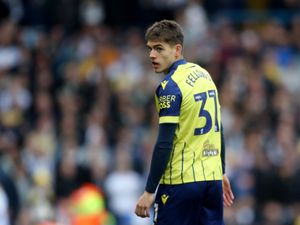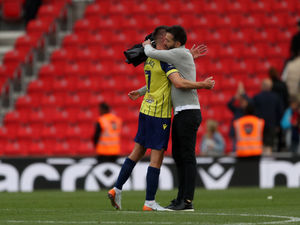Jeremy Peace right on West Brom academy poser
Nothing is guaranteed more to get under the skin of West Brom's main man than the sight of good money going to waste.
And so Jeremy Peace's broadside today at the Elite Player Performance Plan youth system which provides the framework for the development of youth players is no empty gesture.
The Baggies owner and chairman is thinking of pulling out of the academy system in protest at the developments which have exposed EPPP for what it is.
The system, introduced a couple of years ago, is an invitation for the clubs at the top of football's food chain to take their pick.
It came with accompanying spin about raising the bar of coaching quality, improving facilities at clubs and allowing easier movement of unhappy players by establishing a set compensation scale.
That was on the surface. In reality, of course, it has enabled the 'big boys' to pick anyone who takes their fancy without fearing a punishing compensation award by a bad-tempered tribunal.
The smaller clubs caved in because otherwise annual funding from the Premier League for youth development – more than £5million-per-season – would have been with-held.
Already some clubs have pulled the plug on their own academies as not worth the effort. The issue, says Peace, points to the growing power of the elite clubs.
He was equally furious that the Financial Fair Play scheme recently passed has, in his view, set in stone the current pecking order of power and particularly made the two Manchester clubs and Chelsea unassailable.
The sight of his academy, the subject of heavy investment in an effort to tick the one box so far left empty in Peace's reign, getting picked clean of its star pupils has pushed him over the edge.
West Brom are desperate to end the long search for home-grown talent reaching the first team and in Isaiah Brown thought they had their man-boy.
But while they have had no official contact from Chelsea about reports that the 16-year-old could be lured away, they have been around long enough to know what is coming.
That, on top of the approaches from Liverpool and Arsenal for the 14-year-old young England winger Yan Dhanda, has left Peace staring at the figures and the philosophy and concluding neither add up.
Peace said: "The way it is for us, in the short-term, isn't working. And I'm not convinced it will work in the medium-term. These lads are going to go to the big clubs. That's the seduction.
"Why are we spending £2.5million to be another club's academy? It's all about the top four, five or six clubs.
"We have invested in the infrastructure and we will see what happens over the next year. But, from what we are seeing so far, it's very disappointing.
We have brought in a whole load of staff, built up all these facilities and then a club can come along with £200,000 and say 'here you go, thank you very much.'
"It's irritating me. Perhaps £2.5million would be better spent bringing in a player rather than spending it every year on the academy.
"They can't all go to Chelsea and Arsenal – but that's what seems to be happening."
It's another issue for Dan Ashworth's successor Richard Garlick to tackle in a taxing first few months as sporting & technical director.
Garlick quotes the now infamous 2008 case of John Bostock who, after four appearances as a 15-year-old at Crystal Palace, was snaffled by Spurs for £700,000 plus £1.25million in add-ons.
Palace seethed at the betrayal, Spurs at the heavy outlay and for Bostock it was a disaster – he disappeared into a nomadic trail of loans before joining Toronto. He is still only 21, mind.
Garlick said: "The whole idea of the rules for players to be bought and sold at a fixed level was in order to prevent the Bostock figure, which was ridiculous.
"We are classed as Category One. On a pure footballing basis, why would you need to move from one Category One club to another?
"There is no reason why a player should get another education, coaching or physical programme elsewhere.
"But the elephant in the room is that the big clubs were pushing for this so that every player has his price of £200,000."
By Martin Swain





